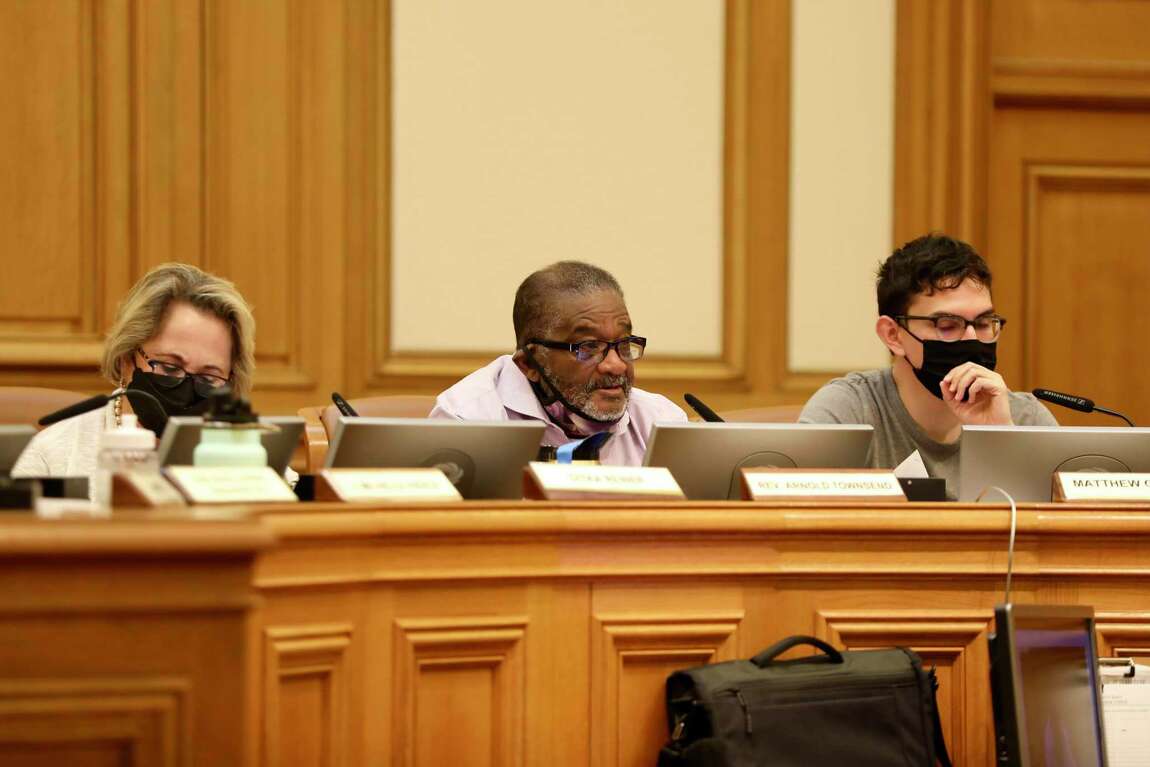
After agreeing to listen to the public and use draft map 4D, the Redistricting Task Force snuck in a vote to reverse course and use a completely different draft map at 3 a.m. last night
by Sana Sethi, San Francisco Rising
Three days ago at the Saturday, April 2, Redistricting Task Force meeting, nearly 200 people waited hours to testify before the task force and urge them to keep neighborhoods and communities with shared histories, needs and culture together. The overwhelming majority of residents outside and inside City Hall on Saturday voiced support for draft map 4D, even as they called on the task force to make necessary tweaks to the map that would ensure resources and representation to uplift the city’s most marginalized communities.
San Franciscans were gratified to see the task force listen to their testimony and vote 8-1 to move forward with draft map 4D. On Monday, residents expected the task force would continue its important work to fulfill the promise of democracy and pass a map that has community support and input.
Under the cloak of a 3 a.m. vote, the task force reneged on that promise and undid its Saturday vote, scrapping plans of using draft map 4D and using 4B instead. Most San Franciscans waking up this morning have no idea of the events that unfolded last night and are in the dark as to why the task force decided to ignore the calls of the community.
In just the past week, San Francisco neighborhoods and cultural districts have raised alarm over how the proposed maps divided LGBTQ+ communities, Asian American communities and other residents with a long history of shared organizing in the Tenderloin and SOMA. Residents of the Haight, NOPA, Japantown, Sunset and Richmond as well as the Transgender District and Castro LGBTQ Cultural District also spoke out against the maps which split their neighborhoods from historical communities of interest.
“Map 4B decimates the Black community’s voting power and ability to elect a Black supervisor in District 10. It consolidates four Black neighborhoods spanning across four supervisorial districts – D5, D6, D10 and D11 – and reduces them into three districts – D5, D10, D11.
“Map 4B finishes the work of the San Francisco Redevelopment Agency in the Western Addition by removing countless Black churches in District 5 at the expense of San Francisco’s most disfranchised ethnic group to favor the wealthy. San Francisco should be ashamed of itself,” stated Geoffrea Morris of INVEST Black Coalition.
It remains unclear why the task force encouraged people to wait up to eight hours to give public comment when they reversed their previous vote in the early hours of the morning.
Going against months of recommendation to start mapping earlier, the task force claimed they wanted to hear from all districts before mapping, delaying the process and leaving just weeks from the first draft map to the final deadline. Clearly the shortened timeline has caught up with the task force, as last night’s 10-hour meeting saw emotions high and the atmosphere growing tense.
Emily Lee of San Francisco Rising noted: “There’s no better illustration of truly undermining and disenfranchising vulnerable communities than map 4B, where the Redistricting Task Force ended up last night. I don’t know what else the community can do – we turned out hundreds of people, including 117 public comments on the record for map 4D, and it’s not enough. The time for playing around and being exploratory with the map is way over.”
The SF Redistricting Task Force must finalize its new maps for the next 10 years by Friday, April 15, leaving the public just days to respond to the change in course that the task force took last night.
“We established our cultural districts to unite and strengthen historically marginalized communities against the forces of gentrification. That’s why it’s so hurtful to see District 6 on the chopping block in this redistricting process – all to the advantage of more affluent neighborhoods.
“Any map that centers the voice of the most privileged in our city, instead of vulnerable populations and communities, sets us back and does not live up to San Francisco’s legacy of fighting for racial equity and equality,” responded Raquel Redondiez, SOMA Pilipinas Filipino Cultural District.
SF Rising is an alliance of grassroots organizations led by people of color and a political home for San Franciscans who care about justice and sustainability, building power through deepening multiracial solidarity, educating and mobilizing voters, working closely with policymakers, organizing and developing leaders of color. Sana Sethi can be reached sana.sethi@sanfranciscorising.org.





